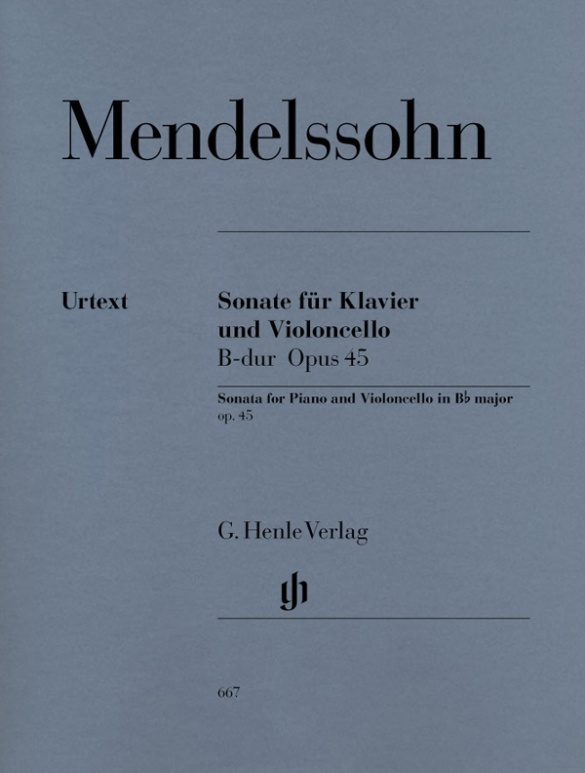

Felix Mendelssohn Bartholdy
Sonate pour violoncelle en Si bémol majeur op. 45
Après la parution récente aux Éditions Henle de la deuxième Sonate pour violoncelle opus 58 de Mendelssohn, c’est maintenant la Sonate opus 45 qui est publiée pour la première fois en tant qu’édition Urtext. On dispose ainsi enfin d’une information exhaustive, avec un excellent texte musical, une préface et un commentaire critique, sur cette contribution majeure à la littérature pour violoncelle romantique.
CONTENU/DÉTAILS
CONCERNANT LE COMPOSITEUR
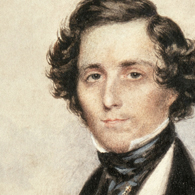
Felix Mendelssohn Bartholdy
Compositeur allemand, chef d’orchestre, pianiste et organiste qui de son vivant comptait parmi les plus importants compositeurs d’Europe. Déjà dans sa jeunesse il trouva un langage musical personnel: dans son œuvre qui aborde tous les genres se reflètent les tendances contradictoires de son temps, classicisme et romantisme. Ses efforts pour l’exécution des œuvres de Johann Sebastian Bach conduisirent de son vivant à la «redécouverte» du compositeur qui perdure sans faiblir jusqu’à nos jours. Son intense activité autour de Bach et son contrepoint a laissé de profondes traces dans sa technique de composition.
| 1809 | Né le 3 février à Hambourg dans une riche famille de banquiers. 1811 fuite avec les parents à Berlin. Premiers cours de musique auprès de sa mère. |
| 1819 | Devient l’élève de Carl Friedrich Zelter. |
| 1820 | Admission à la Singakademie de Berlin. |
| 1821–23 | 12 symphonies pour cordes. |
| 1825 | Octuor pour cordes en Mi bémol majeur op. 20. |
| 1826 | Ouverture du Songe d’une nuit d’été op. 21. |
| 1827 | Début de ses études à l’université de Berlin. |
| 1829 | Reprise de la Passion selon saint Matthieu de Bach à Berlin les 11 et 21 mars. Voyage en Angleterre et en Écosse. |
| 1829–30 | Symphonie «Réformation» en Ré mineur op. [107] avec intégration du choral «Ein feste Burg ist unser Gott». |
| 1830–32 | Grand voyage entre autres en Italie et en France. Concerto pour piano en Sol mineur op. 25, Ouverture en Si mineur «Les Hébrides ou La Grotte de Fingal» op. 26 (1829-1830). |
| 1833 | Chef de la musique à Düsseldorf. Symphonie italienne en La majeur [op. 90] (1830-33). |
| 1835 | Directeur des Concerts du Gewandhaus à Leipzig. |
| 1836 | Création de l’oratorio «Paulus. Oratorium nach Worten der heiligen Schrift» op. 36 à Düsseldorf. |
| 1838–44 | Concerto pour violon en Mi mineur op. 64. |
| 1840 | Composition du «Chant de louange. Symphonie-Cantate sur des paroles de l’Écriture sainte» op. 52. |
| 1841 | Berlin, au service du roi de Prusse. «17 Variations sérieuses» en Ré mineur op. 54 pour piano. |
| 1842 | Achèvement de la Symphonie n° 3 («Écossaise») en La mineur op. 56, qui commence avec des accents de lied. |
| 1843 | Musique pour le «Songe d’une nuit d’été» de Shakespeare op. 61. Directeur du Conservatoire de Leipzig qui vient d’être créé. |
| 1846 | Création à Birmingham de l’oratorio «Elias» op. 70. |
| 1847 | Quatuor à cordes en Fa mineur [op. 80]. Meurt le 4 novembre à Leipzig. |
About the Authors
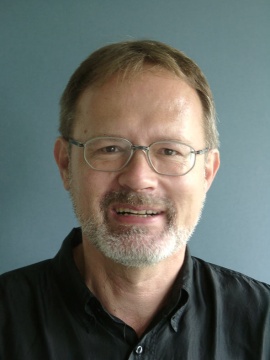
Ernst-Günter Heinemann (Editeur)
Dr. Ernst-Günter Heinemann, born in 1945 in Bad Marienberg (Westerwald), completed his schooling in Gießen and read musicology, philosophy and German in Marburg and Frankfurt/Main and also for some time Protestant church music. He did his doctorate on “Franz Liszts geistliche Musik. Zum Konflikt von Kunst und Engagement”.
From 1978–2010 Heinemann worked as an editor at G. Henle Publishers (in 1978 in Duisburg, from 1979 onwards in Munich). He edited a great many Urtext editions for the publishing house, including “Das Wohltemperierte Klavier”, Volume 1 by Bach and all of Debussy’s piano works. In addition, he wrote essays on Debussy, Grieg, Liszt, Mendelssohn and questions concerning general editing, as well as giving seminars on editorial practice for musicology students in Munich.

Klaus Schilde (Doigtés)
Prof. Klaus Schilde, born in 1926, spent his childhood in Dresden. There he was greatly influenced by Walter Engel, who taught him the piano (Kodaly method), composition and violin. From 1946–1948 he studied at the music conservatory in Leipzig with Hugo Steurer. After moving to the west in 1952 he studied with Walter Gieseking and Edwin Fischer, as well as with Marguerite Long, Lucette Descaves and Nadia Boulanger in Paris.
Schilde won numerous prizes. From 1947 onwards he gave concerts as a soloist and chamber musician on almost every single continent with renowned orchestras. He taught at the music conservatories in East Berlin Detmold, West Berlin, Munich, Tokyo (Geidai) and Weimar. From 1988–1991 he was President of the Staatliche Hochschule für Musik und Theater in Munich, where he also taught for decades as a professor. There are numerous radio and television broadcasts with Klaus Schilde as well as CD recordings. Schilde has contributed fingerings to almost 100 Henle Urtext editions.
Prof. Klaus Schilde passed away on 10 December, 2020.
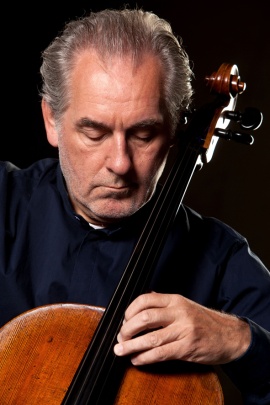
Claus Kanngiesser (Doigtés violoncelle)
Informations sur la sécurité du produit

G. Henle Verlag
Vous trouverez ici des informations sur le fabricant du produit.G. Henle Verlag e.K.
Forstenrieder Allee 122
81476 München
Allemagne
info@henle.de
www.henle.com
Après la parution de la "Deuxième Sonate pour violoncelle opus 58", c'est maintenant la "Sonate opus 45" qui est publiée pour la première fois. On dispose ainsi enfin d'une information exhaustive, comprenant un excellent texte musical, une préface ainsi qu'un commentaire critique, sur cette contribution majeure au répertoire romantique pour violoncelle.
MusoNach der kürzlich bei Henle erschienenen zweiten Violoncellosonate Opus 58 wird Mendelssohns Opus 45 erstmals als Urtextausgabe vorgelegt. Endlich wird mit exzellentem Notentext, Vorwort und Kritischem Kommentar erschöpfende Information zu diesem bedeutenden Beitrag zur romantischen Celloliteratur geboten.
PizzicatoThe editors offers a preface with background notes as well as notes on the text’s sources. As befits this publishing house the layout for both cello and piano scores is generous.
Music Teacher MagazineThis is one of three large-scale works for Cello and Piano and was completed in 1838. The present edition provides a set of performance parts and an editioral commentary outlining the sources used is given at the end of the publication, detailing necessary revisions and alterations.
Sheet Musicrecommandations
autogenerated_cross_selling
Autres éditions de ce titre
Autres éditions de ce titre


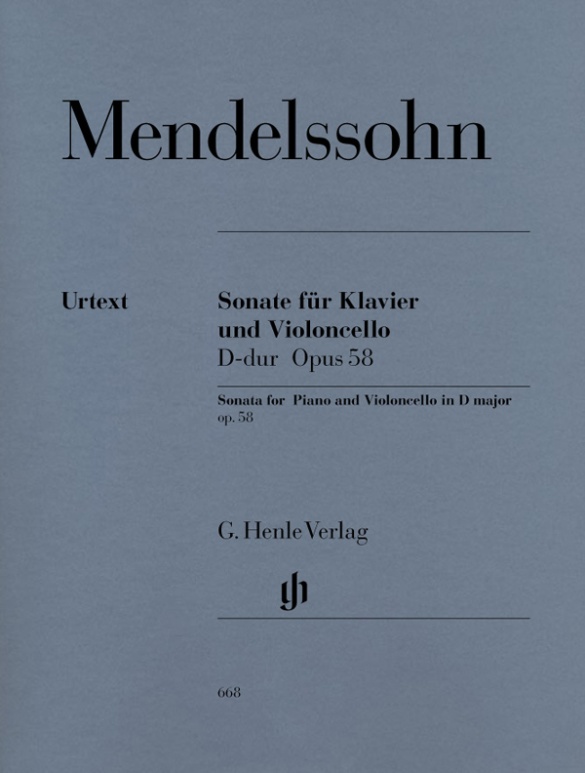

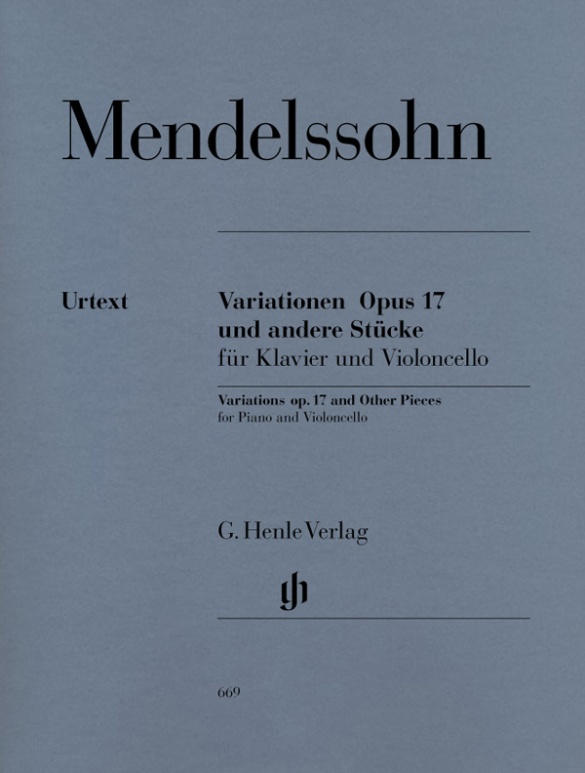
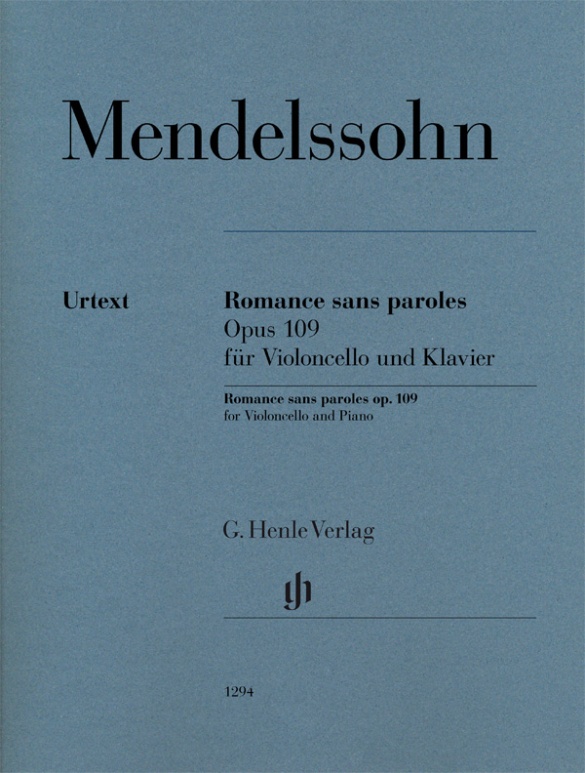
parties avec ou sans indications de doigté